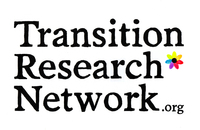Sharing Resources
Making sure non-academics partners achieve appropriate access to the financial and other resources supporting and/or produced in the research.
+problem
Research resources - whether the inputs, the skills, or the outputs - are not always shared with the subjects of the research.
+background
The problem here recurs elsewhere in this guidance too: where research projects are conducted separately from, and with little or no dialogue or collaboration with Transition, opportunities to share resources and benefits are missed.
Sharing resources is not only fairer and more equitable - it can lead to better research, make the process more productive and beneficial, and help to establish sustainable research partnerships.
Sharing resources can involve:
- the inputs, especially research funding, which can be used in ways that mean projects support aspects of Transition work as well as taking resources such as time and knowledge in one direction
- skills and expertise, which can also flow in both directions
- the outputs, especially research findings which are valuable for Transition to have access to, but also other outputs such as reports, websites, exhibitions, and so on.
Importantly, this sharing works both ways, and can help to counter extractive and exploitative research relations.
Collaborative and participatory approaches to research such as Participatory Action Research have an explicit focus on sharing resources throughout the life of a project and beyond.
+solution
Make sure that non-academics partners achieve appropriate access to the financial and other resources supporting and/or produced in the research. Build in opportunities for the two way sharing of skills and knowledge for the maximum possible benefits.
